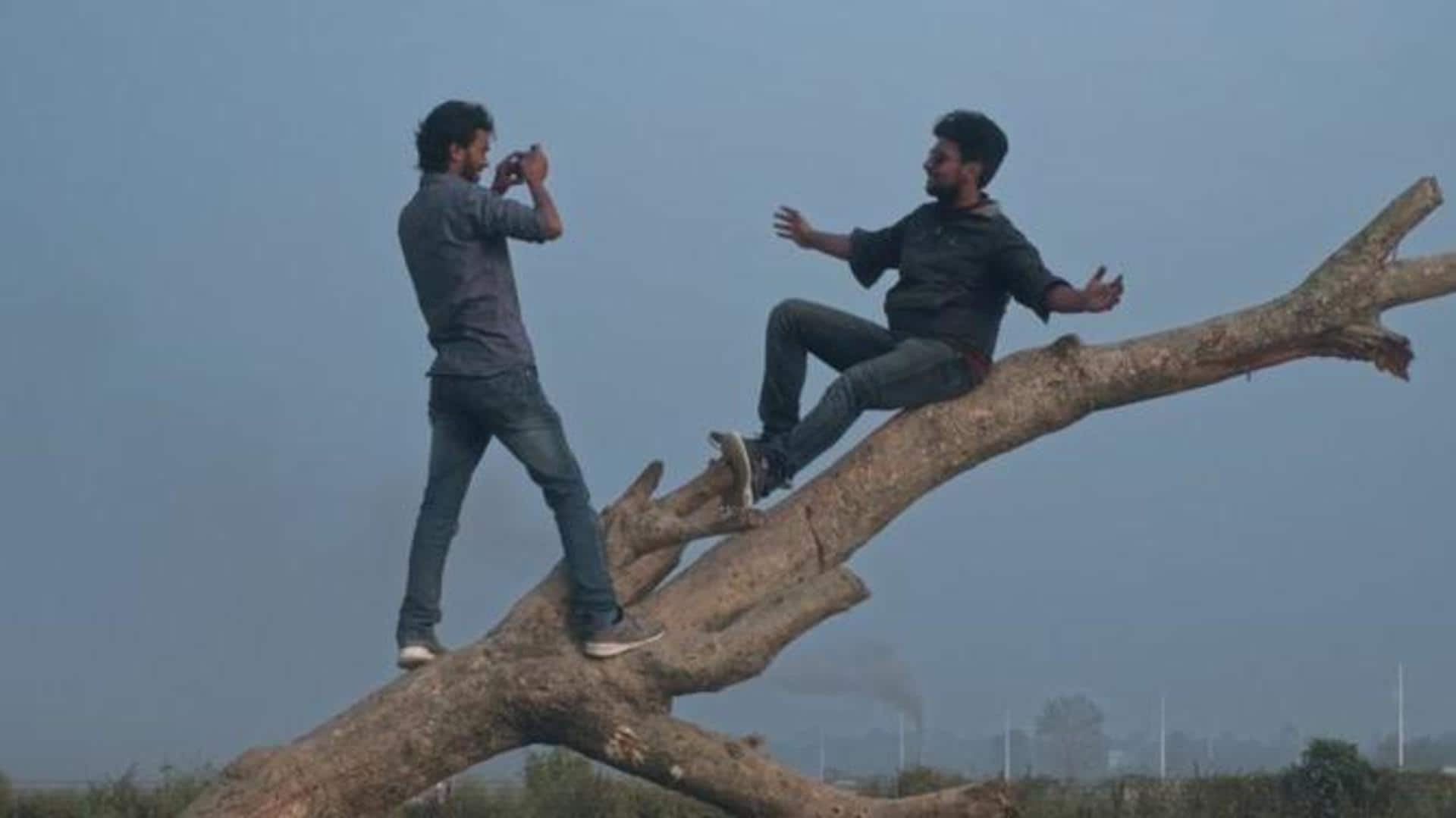
#NewsBytesRecommends: 'Dhuin'—impeccable drama of suppressed desires and ruptured ambitions
What's the story
After a critically acclaimed debut in the form of Gamak Ghar (2019), filmmaker-writer Achal Mishra is back with his second film, Dhuin, which began streaming on the OTT platform MUBI India on Friday. Starring a sublime and emotionally resonant Abhinav Jha, Dhuin is the story of the ruthless clipping of ambitious wings, quashed dreams of upward social mobility, and desires fractured by fate.
Plot
Film follows sky-high goals of theater artist
Dhuin—set in the post-COVID-19 world—follows the travails of Pankaj (Jha), a 25-year-old theater actor from Darbhanga, who wishes to make it big in the glittery-glamorous world of Mumbai. However, crushing financial despair gnaws at him, impeding his artistic aspirations; his parents want him to crack the Indian Railways exam—the pinnacle of the Indian middle-class dream, the quintessential "safe" job with no risks, only rewards.
Story's rootedness
'Dhuin' thrives on rootedness and simplicity
Exactly like Gamak Ghar, Dhuin, too, scores a home run on its familiar artistic rootedness, so much so that it feels like a Hindi/Urdu short story in a classic book—it's real and relatable and doesn't reek of superficiality. Seemingly shot at real locations such as railway tracks, large grounds, Darbhanga Railway Station, and nondescript homes, Dhuin speaks to all artists wrestling with Sisyphean realities.
Dreams and aspirations
Aspirations, dreams burn hole through poor's pockets
"Can the middle class dare to dream?" is the uncomfortable question Dhuin throws at us. Pankaj's room has stacks of entrance exam books—he isn't getting ahead of himself and trying to crack both avenues: the aspirational and "realistic." In the first scene, Pankaj tells his theater supervisor that they aren't performing at Delhi's Shri Ram Centre—a theatrical mecca tragically out of bounds for him.
Alienation
Pankaj goes through whirlwind of emotions in 'Dhuin'
Dhuin's most melancholic scene comes toward the second half when Pankaj finds himself befuddled during a discussion about Iranian director Abbas Kiarostami. He lives in a small town and has limited exposure, and trying to make ends meet takes precedence over Kiarostami's cinema. As theater veterans dissect the filmmaker's work, Pankaj becomes alienated and isolated by the minute. It's the moment of his othering.
Meta narrative
'Dhuin' aware of its backdrop, target audience
Interestingly, Mishra is called "Darbhanga's Kiarostami" by several critics, so his choice of the film's subject matter and the aforementioned scene isn't a mere coincidence. Everyone holding on to ambitions despite being fraught with uncomfortable circumstances finds representation in Dhuin; through its self-aware narrative, it paints a picture of the grime beneath the glitter of acting. Aspirations, after all, are a rich man's affair.
Crossroads
Protagonist constantly at war with his father
In one poignant scene, Pankaj's father mockingly makes fun of his association with theater, passing snarky remarks about how he "dances on the roads." One man's achievement is another man's embarrassment. Although he has Pankaj's best interests at heart, his father's words cut through the protagonist's heart like a knife—in a different setting with more resources, his life would have taken a different course.
Verdict
'Dhuin': Must-watch potent drama
By the time the 50-minute-long Dhuin ends, you hear your heart breaking. The threads of the dreams that Pankaj had painstakingly crocheted fall out, and yet, he can't stop them. The film's poetic rhythm suddenly turns into a soul-crushing reality. His aspirations get the eventual boot—they run out of oxygen and, painfully enough, cannot be resuscitated. Watch this poetry in motion on MUBI today.